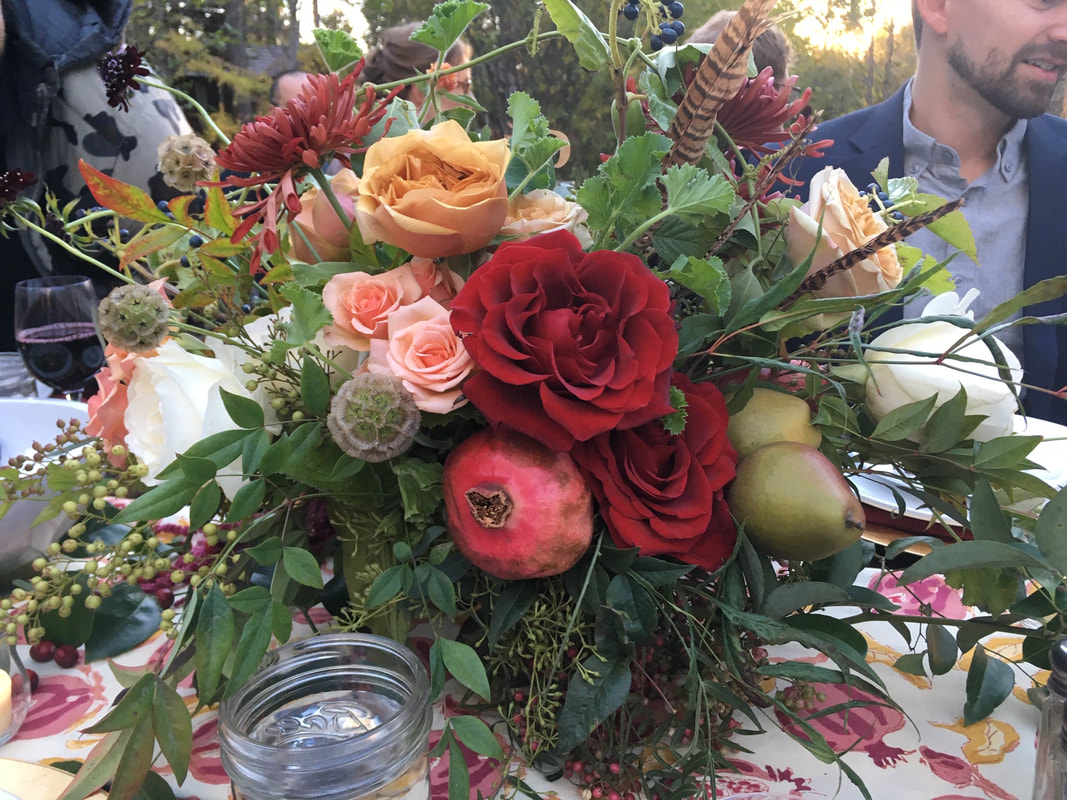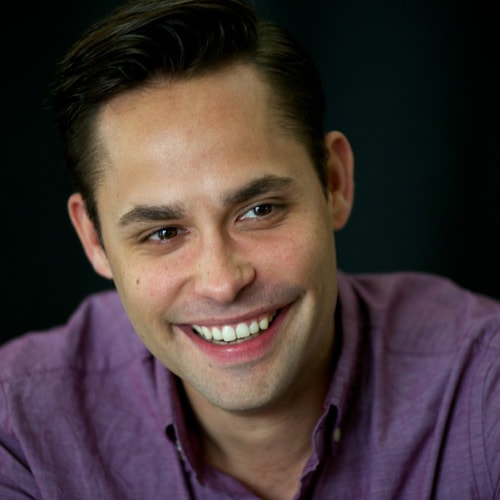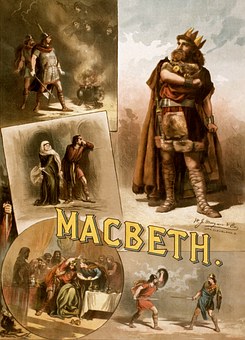Archived Blogs
|
I’ve returned from another writer’s conference. Another lesson in humility. I’ve had lunch with an award winning poet… Listened to a author that can take the English language and shape it into intimately personal memories I’ve not actually experienced but would swear I recognize… It makes my heart beat faster when I sit in class and hear so many terms and ideas that I’ve never heard before. It’s like swimming in a murky lake and enjoying the coolness of the water on a hot day but having the constant chatter of doubt in the back of your head. How deep is this water? What just brushed against my leg? Maybe I should head to shore? Maybe I’m above my head. But then this… Our instructor asked us to write down secrets about ourselves. Then she asked for volunteers to relate what they wrote down. If you sat next to me, you might have heard the soundproof walls come crashing down around me. Secret (definition) : something that is meant to be kept unknown. I’m just assuming she didn’t understand the term. Interestingly, several classmates were willing to confess their darkest secrets to complete strangers. Theft, sleeping with a married man, pornography….Wow. In front of me, a girl in her early twenties. She’s wearing a jean jacket embellished with patches that are curling at the edges. (ironing these on doesn’t work as well as sewing but who has time?) Next to her was a girl with an asymmetric hairstyle—the longer, curly strands had faded from blue to metal-grey while the shorter, cropped side revealed her darker roots. To my right side, an overweight man (late twenties) in a too large chino jacket with his hair pulled into a pony-tail. His disclosure sounded like a declaration of defiance. “No one knows who I really am.” The blue-haired girl immediately nodded in agreement. I heard her whisper to her friend, “I don’t even know who I am.” On my left, a man leaned back in his chair as he listened to the comments. He had a full head of grey hair that was swept away from a faintly lined face. Long legs, clad in faded blue jeans, stretched out leisurely in front of him. A hint of a smile crossed over his lips. Maybe he shared in their confusion… he wondered who he was, too. Or maybe he knew the answer. I’m betting it was the later. He looked a little smug. I know the answer too. Perhaps wisdom really does come with the onset of silver strands. You are the sum of decisions you have made. That’s it. That’s exactly who you are. I’m not discounting what has happened to you as a child. But even in extraordinary circumstances like child abuse, counseling can do a lot to restore children. (Thank you, Children’s Advocacy Center!) But what truly defines you lies in an almost endless series of small, seemingly insignificant decisions that you’ve made. It’s also why you can’t possibly know who you are when you’re still young. Don’t get me wrong, the big decisions count too. Deciding to go to college, accepting the first job, moving out of state…those have an effect. But what I’m talking about is more subtle. It’s…. Paying for the item the cashier forgot to ring up. Going to work when you’re bone-tired from a late night Volunteering to do a job when you’re already feeling overwhelmed Giving that speech even if it makes your palms sweat and your heart race. Smiling when you don’t want to Forcing yourself to run a little further than yesterday. Drinking tea instead of coffee Being courteous to someone who doesn’t deserve it. Returning the the twenty dollar bill that slipped from a stranger’s pocket Honoring your commitments, even if others don’t Writing a check for a charity, putting money in the collection basket, collecting food for Thanksgiving. Having a deep belief in the powers of chocolate Staying up late to study Admitting when you’ve made a mistake Turning the other cheek when you’d rather return the attack Making cupcakes for your child’s classroom Making no excuses Going on a mission trip Holding up your friend when she grieves over the loss of a marriage, a job…a child It’s a lifetime of decisions that you’ve made.
And one day you will realize that… You’ve become an honest, reliable, tea-drinking, strong, kind, chocolate-addicted, hard-working, and brave person. Or Something else altogether. It’s your decision.
0 Comments
I went to a wedding last weekend and it was different than I expected. The wedding venue was in campground and we stayed in cabins with wide porches and rustic charm. We kept a fire going in the fireplace the entire weekend. The wedding was for a friend’s daughter. Once I arrived and made sure that my apparel was correct for the occasion... my job was done. It was really quiet on the property. There were no radios or television. No cell phone or internet service. Only towering pines and a meandering stream. With the exception of when we drove to town for shopping or lunch, we were not connected to the outside world. It was unnerving at first. I couldn’t receive any messages about mom in her memory care unit. No emails with work problems awaiting my response. My husband’s texts updating me on his travels went unanswered. We were living outside of our normal lives. The rhythm of our days was different too. We woke up without alarms and went to bed when we were tired. With the exception of the wedding events, our activities were flexible. We had coffee in our pajamas and made spontaneous short trips to explore local towns. Mostly, we did a lot of talking. Around a table with filled with snacks from Trader Joe’s, sitting in Adirondack chairs with glasses of red wine cradled in our hands, while sharing hair spray and primping for a special occasion. Perhaps because of my inability to use my phone or computer, I felt deeply connected to those around me. More than that, I felt happy… I know that being around friends and family can make you happy…but what was so special about this weekend? Here is what I think... I did a lot of listening. We all listen (especially at work) but this time…it wasn’t my job to fix anything. I could be curious and simply acknowledge what my friends were saying. It did no good to think about anything beyond our cabin because there was nothing I could do…so I was more focused on our discussions. We talked of politics, economics and home design but there were also personal stories of abuse, infidelity, courage and strength. Despite knowing these people for years, I saw them with new eyes. Once I got home, I spent some time trying to figure out what was so unique about the weekend. Meditation is all about focusing on your breathing and living in the moment. That’s what I was doing...living in the moment. And it felt good...really good.
Instead of the superficial connection we have by cell phones, email and texting...I felt really woven into the experience that was taking place around me. Appreciating each moment as it occurred. At the end, I felt…nourished. At the reception dinner, on the final night, I listened as conversation and laughter mingled with the sounds of a nearby gurgling stream. Once the sun descended, the temperature dropped quickly and the air was crisp and sharp with only the faintest smells of our evening fare. I leaned back in my chair and looked up. You tend to forget how lovely the evening sky is when you’re away from other light sources. The stars glowed in a vast dark velvet sky. And I was a part of it all. Everyone knows Fred Rogers (aka Mister Rogers). But after reading about his background and accomplishments, I wanted to know…how did he become the man he was? And then I found a copy of one of his letters listing ten books that influenced him. Here’s the list.
Fred Rogers was a ordained Presbyterian minister so I’d be really surprised if the Bible wasn’t on his list of influential books but why are the Old and New Testaments of the Bible listed separately? I had no idea. So I asked an expert. Another minister. Let me introduce Charlie Ridenour… Charlie is the Senior Pastor at Cross Roads Bible Church. I’ve known him since he was a young boy and I have to say…of all the kids I knew at that time…I would have never picked him as someone who would lead a congregation. He was a clever smart-aleck, a mischievous trouble-maker and an instigator of boyish exploits. God does work in mysterious ways. I’m not convinced that he’s changed much...but I am sure that he’s exactly where he supposed to be. Here are the questions I asked and his answers for me: I suspect that you believe that the Bible was inspired…or, in other words, God influenced the writing of the Bible. But the Bible can be confusing and difficult to understand. Do you view the Bible as a book of inspiration for someone who is not a member of the clergy or who does not feel educated in religious topics? I do believe the Bible is inspired by God, but whatever your philosophical or religious bent - whether you believe the Bible is inspired or just words on a page - it is inspirational. It’s full of stories of justice, redemption and mostly love. If you believe the Bible is the inspired story of God redeeming the world, then it takes on deeper, richer level of inspiration. It has specific application for today and gives us hope for tomorrow because it reminds us that our God who loves us is in the process of fixing the mess. But even if you don’t believe in God, stories of love, justice, and redemption are still inspirational - it’s why we love Disney movies - christian nor not. Why would someone list the Old and New Testament separately as books that inspired them? The bible is a bunch of books that tell one complete story. It's broken down into two testaments - the Old and the New. The OT has 39 books and the NT has 27 books. Both are a compilation of history, letters, poems, and proverbs that reflect the character of God and tell the story of Jesus in some way or another as God goes about rescuing his creation from injustice. Even though there is one unifying theme throughout the Bible, the different books and styles of writing inspire people in different ways at different times in their lives. When I was younger, I was a huge fan of the mid-90’s and early 2000’s R&B music scene. My favorite was Boyz II Men. I would listen to it on repeat, sing along with it, and generally drive my brothers crazy as we drove to school together in my 1988 Volvo with a stereo system that costs almost as much as the car (teenage priorities are the best). I loved the soul in the music and was convinced one day they would ask me to join the group. Now that I’m older, I’m more of an indie-rock music guy - though I’ll always have a soft spot for R&B. The point is they sing about the same stuff (mostly the power and pain of love), but in very different ways. When different parts of the Bible inspire people in different ways it reminds us of our God-given diversity, preferences, and marks how we’ve often changed over time. So we might have a time in our lives when the Psalms are really inspirational or another time when the gospels are moving us to see God and the world in beautiful ways. All of them are good and they all singing about the same thing as they point to the bigger story of God in scripture. Do you consider the New Testament more important than the Old Testament? Nope. I love history - and the Old Testament has a lot of history, so I’m drawn to books like Genesis, Exodus and the books with all the guys names (the prophets). The two testaments tell different parts of the same story, they are different chapters in God’s story of redemption. When we read either the old or the new, we need to understand what part of the story we are in now and how older parts might differ, but inform the chapter we are currently living in today. For some reason as kids you don’t realize your parents existed before you came along. Let’s call it an innocent immaturity, or ignorance, or pride that all kids share and hopefully grow out of at some point. A few years ago, my Dad’s friend from his Navy days(way before I was around) was in town and we all had dinner. I sat there for hours as they told stories of a man I’d never met. It was amazing. I loved that night. It made me see my dad a little differently and gave more context to the man I knew growing up who he is today. Now, God doesn’t change or grow like we do, but the more we see, study, and know of the Old Testament the more appreciation we have for God today. The new testament has more direct application for today - so it gets more teaching time in churches - but to just teach the NT without the context of the old doesn’t do it justice and robs us of the richness of knowing previous parts of the story in our present chapter. Can you name some life-changing themes from the Old Testament? Growing up, I always thought the major themes of the OT were rules and wrath. It told stories of how people didn’t listen to God and suffered the consequences when their disobedience made him mad. As i’ve grown older, I’ve realized that was a pretty immature view of the Old Testament that simply looks at the what and ignores the why. When I was a kid I thought my parents hated fun - so they set rules and held my actions accountable to consequences. Now that I’m older (and a dad) I realize they didn’t fun, they just hated the idea of me suffering. They wanted more for me than pop tarts for breakfast, lunch, and dinner provided. As I grew up I saw what they knew - the rules consequences existed because they cared. If you look at the OT as a whole, the major theme that is woven through all the pages is the faithfulness of God. Motivated by a profound love for his creation, he doesn’t stop chasing his people even though they keep running away towards things that kill them. I just had my first kiddo, and the Old Testament is how I want to love my daughter and is a constant reminder of how much God loves me and chases after me. Sure, there are stories of wrath and rules, but they are part of a bigger picture of a good God who wants good things for his people. From the New Testament? The overwhelming story of the New Testament is grace. It’s unmerited favor from God to us. I live and work in an upper, middle class community in Texas and live in a meritocracy. You have because you’ve earned. You work hard and reap the rewards hard word provides. We teach the system of meritocracy to our kiddos at an early age in schools (study hard, get good grades), we live it out in sports (practice more and play), and it apply it in jobs and successes after college (good schools mean good jobs). Now, I absolutely believe in hard work, in applying ourselves fully to every endeavor, and in the idea that we can and should earn success from discipline and good decision. The only problem is the New Testament teaches a very opposite idea about our relationship with God. The meritocracy guiding our cultural is the antithesis of the idea of grace - or the unmerited favor of God. The New Testament tells the story of Jesus who earned the favor of God for us by dying. It teaches an identity that isn’t earned, but given. In a world driven by the ethic of things earned, receiving something I didn’t earn is more difficult than putting in the hard work. It’s incredibly counter cultural and the stark contrast highlights the beauty, freedom and necessity of grace. The Bible puts it like this in Paul’s letter to the Ephesian church - "God saved you by his grace when you believed. And you can’t take credit for this; it is a gift from God. Salvation is not a reward for the good things we have done, so none of us can boast about it. For we are God’s masterpiece. He has created us anew in Christ Jesus, so we can do the good things he planned for us long ago.” We don’t earn God’s love. We can’t. Grace is radical. It’s freeing. It’s counter cultural and it’s an idea I too often forget in a world that tells me I add up to the things I’ve done or the success I’ve earned. Fred Rogers appreciated deep, thoughtful books. Do you believe that the lessons you learn may change or evolve as you read and re-read the Bible? Oh man, I hope so. At my church, we have a saying - “Growing people change”. As we grow up, our perspective shifts. It’s a simple sign of maturity. I’ve been a dad for about 40 days and I can tell you the way I see parenting and my view of my parents has dramatically changed - hopefully for the better. It’s a necessary part of growing up. People that refuse to change usually are immature people. I think that’s true for individuals and for the larger church as a whole. God doesn’t change, and sometimes we misconstrue our changing perspectives on issues or what the Bible says and teaches as God changing or as truth being re-defined, so we reject change and don’t ask questions that might cause us to see things differently. As a Christian, we have some “non-negotiables” but our evolving view on some parts of scripture doesn’t threaten who Jesus is or what he did for you and me when he died and rose again. It’s simply a sign that we are growing up. The truth is I’ve been wrong before on what the Bible teaches and history is littered with examples of the church teaching hurtful or oppressive doctrine in the name of God. I want to continue to grow, use all the resources I have at my disposal, ask the tough questions, and continue to learn how the Bible speaks to us and what it says about God - and that involves change. It’s just a part of growing up into maturity as a christian and as a Church. And that doesn’t threaten a God who doesn’t change - it simply highlights that I have room to grow as I learn more about God. Ok. Got a little carried away there. I’ll step off my soap box now. Sorry. It feels necessary to have an interpreter of the Bible—someone who can explain the backstory. Our cell phones and appliances don’t need instruction manuals but it feels like the Bible still does. Why is that? Most of the bible wasn’t written to you, but it is written for you. iPhones are designed to and for you - with you in mind. Pick up an iPhone a couple thousand years from now and I’m guessing you won’t know how to work the thing right out of the box. Just put a rotary phone in front of any teenager and ask them to use it. After five minutes of trying to text their friends with it they’ll get a bit frustrated. You’d need some help - and sometimes we need help when we read the Bible. The beauty of the Bible is there is something for everyone - for those on their first read and the people like me who study it for a living. It’s a reflection of God’s character. He is accessible to those who just met him but deep enough for us to never find the end to knowing him. Let’s stick with the parenting theme here (because I don’t remember anything about life before the last 40 days). The truly astonishing part of having a kid is that the hospital just let’s you leave with this child. I’d been a dad for about 48 hours, and they wheel you to the front, dump you out of a wheel chair, and say, "good luck”. Every day my wife and I look at our kid, learn more, get better at bed times, feedings, baths - all the important stuff - and for those things we truly don’t know anything about, there are our parents, doctors, and friends we can call and figure out what’s going on with our kid. Most of the Bible is pretty straight forward and can be read and applied by anyone. Sure it helps to have interpreters, commentaries and pastors to figure out what the Bible is saying in some difficult areas and add deeper meaning to the text, but just like being a first time parent, it’s approachable, applicable, and you get the big idea. I’m sure it will be different with the second kid. We’ll appreciate things as they happen more because we know the general story - the way this things works - and it will allow us to see different parts of parenting. As we read and know more of the backstory of the Bible we see and appreciate different parts of God and our faith. If you are searching for God, should the Bible be the first place you look or would you be better off starting somewhere else?
I’d absolutely start with the Bible - in concert with other resources. The Bible tells the story of God and his plan for redemption, so if you’re searching for God it’s a good place to start. That in mind, It’s also helpful to have other resources to help you think through whatever lens we bring to the text. Tim Keller’s “Reason for God” is a personal favorite of mine. I haven’t read it in years, but “The Case for Christ” by Lee Strobel has had some staying power for a reason. He approaches the claims of Christ from a unique perspective that is helpful if you’re a bit skeptical (it’s my default position about most things). Considering that Charlie is a new dad, he spent a lot of time on these answers and I really appreciate PS. This blog series all started with one of my favorite quotes: "...anyone who does anything to help a child is a hero to me." But my hero worship for Fred Rogers only goes so far...did you know that followers of Rogerism believe that Mister Rogers is a holy figure? That he was the second coming of Christ? Fred Rogers wouldn't have liked that. Everyone knows Fred Rogers (aka Mister Rogers). But after reading about his background and accomplishments, I wanted to know…how did he become the man he was? And then I found a copy of one of his letters listing ten books that influenced him. Here’s the list.
So I’ve been checking them out and now I’m on number #8. You can read my first blog here Ubiquitous: existing or being everywhere, especially at the same time. When I was trying to figure out why Shakespeare was such an influence over Rogers, it became obvious that Shakespeare’s works, quotes, themes…are everywhere. How else can you explain that the book I picked up to read last week, One Thousand White Women, featured an army captain that was a “student of the Bard”? Sure, you could chalk it up to coincidence but I don’t think so. Renee Ann Smith (globalstudentnetwork.com) said that “Shakespeare’s themes still resonate today. His plays delve into the issues of love, loss, treachery, honor, tenderness, anger, despair, jealousy, contempt, fear, courage, and wonder. They raise questions of morality, politics, war, wealth, and death. By exploring what’s dearest to our hearts and most important to our souls, Shakespeare helps us better appreciate life.” Reading Shakespeare is admittedly hard but I believe that when you focus hard, when the neurons are madly firing in your brain, you are more liable to gain something from what you’ve read. I know it’s easy to get bogged down by the ‘thous’ and ‘doths’ but underneath all of that funny language are lessons that a father might teach. Don’t believe me? What about: It is not in the stars to hold our destiny but in ourselves. We know what we are, but know not what we may be. And I bet his writing is more familiar than most people realize. You’ve probably heard these quotes: Good night, good night! Parting is such sweet sorry, that I shall say good night till it be morrow! What’s in a name? That which we call a rose by any other name would smell as sweet. This above all; to thine own self be true. To be, or not to be, that is the question. His themes and his stories have been reinvented and reimagined for the past 400 years. George R.R. Martin (Game of Thrones) said that he used “stuff from the Wars of the Roses” in an interview in Rolling Stone. The musical West Side Story is based on Romeo and Juliet. The sisters in Harry Potter are based on the three witches in Macbeth. So why did Fred Rogers say that he was inspired by the works of Shakespeare?
I would propose two answers. First, he clearly appreciated reading stories with complexity and layers—as evidenced by other books on his list. Secondly, it wouldn’t surprise me if, by reading Shakespeare, Rogers was able to come up with ideas for his own show. Now, I’m not saying the King Friday XIII was based on Hamlet! But if you look at the themes that Shakespeare wrote about: love, anger, jealously, fear…you will see a list of emotions that Rogers taught about. After all…. All the world’s a stage, and all the men and women merely players: they have their exits and their entrances; and one man in his time plays many parts… Rogers was an actor with a purpose. He wanted to teach the children of the world some important lessons and what better idea then to to take ideas from works that have survived the test of time. In his words… We all have only one life to live on earth. And through television, we have the choice of encouraging others to demean this life or cherish it in creative, imaginative ways. Was he successful? If we were to judge Rogers by his own standard of success, I would say YES. There are three ways to ultimate success: The first way is to be kind. The second way is to be kind. The third way is to be kind. Fred Rogers was a ordained Presbyterian minister so I’d be really surprised if the Bible wasn’t on his list of influential books but why are the Old and New Testaments of the Bible listed separately? (I’ve asked an expert for help with this one) PS. When the Three Rivers Shakespeare Theatre closed, The Pittsburg Classic Theatre was formed in order to give local artists a chance to participate in classic works. In October 2017, Romeo and Juliet were performed in Oakland--in the very studio that hosted the production of Mister Roger's Neighborhood from 1968-2001. I have a feeling Rogers would have approved. |
Archives
October 2020
Categories |
COPYRIGHT 2017 SUSAN BADARACCO | Site Credits

















 RSS Feed
RSS Feed